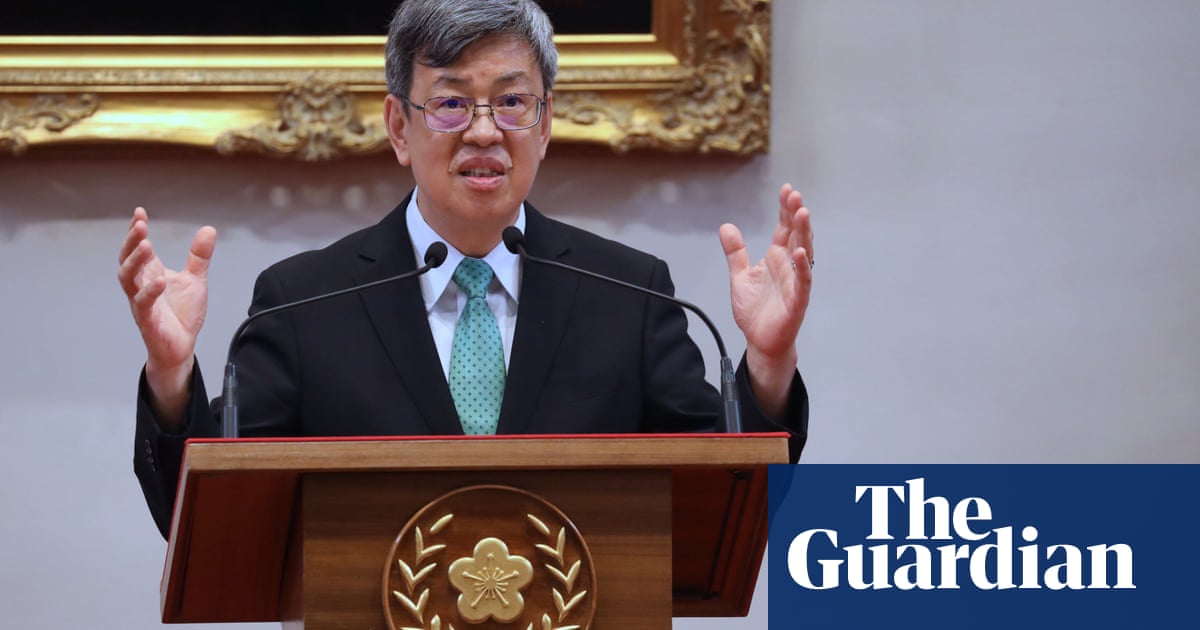Taiwan’s president, Lai Ching-te, will not attend thefuneral of Pope Francis, despite his foreign ministry saying earlier it was their “most important aim” in negotiations with the Vatican that he be there in person.
The ministry announced on Wednesday that Taiwan would be sending its former vice-president, Chen Chien-jen as special envoy. Chen has deep ties with the Vatican and metPope Francissix times, but the decision means Taiwan’s delegation will be without a serving government official, despite the Vatican being one of Taiwan’s few diplomatic allies.
Just 12 governments, including the Vatican, recogniseTaiwanas a country, and China lobbies to keep it excluded from most multilateral bodies. As a result there are few opportunities for Taiwan’s president to mix with other foreign leaders.
Taiwan’s deputy foreign minister, Wu Chih-chung, had earlier said the government was in talks with the Vatican over Lai’s attendance.
“This is the foreign ministry’s most important aim,” Wu said on Wednesday. Wu said the Vatican had “considerations” about whom Taiwan would send, as well as its own “international relations”, but did not go into specifics.
“The church has its own diplomacy, I am not allowed to give answers on their behalf,” he said. Wu was speaking outside Taipei’s Catholic Archdiocese, where he was accompanying Lai on a visit to pay respects to Francis. Lai did not speak to the press.
Later on Wednesday, Wu told reporters that Chen was “the best choice under the current circumstances”.
Past leaders of Taiwan have attended formal events at the Vatican. The former president Ma Ying-jeou attended Francis’s first mass as pope in 2013. His predecessor, Chen Shui-bian, represented Taiwan at the funeral of Pope John Paul II in 2005, and was seated according to Taiwan’s formal sovereign name, Republic of China.
Taiwan’s ambassador to the Vatican at the time said Chen’s attendance marked the first visit to Europe by a sitting Taiwanese president.
China’s government claims Taiwan as a province and does not allow other countries to have formal diplomatic relations with both governments. The vast majority of countries have chosen relations with China, with some having switched back and forth amid lobbying and incentives offered by both Taipei and Beijing. The remaining 12 allies of Taiwan are mostly small island nations in the Pacific and Caribbean.
China’s relations with the Vatican appeared to improve under Francis, whooversaw controversial agreements with Beijingabout the appointments of Catholic bishops in China. The Chinese government insists that such appointments are a matter of sovereignty andmust be government-approved.
Beijing did not issue public condolences to the Vatican until a foreign ministry press briefing on Tuesday.
“In recent years China and the Vatican have maintained constructive engagement, conducted useful exchanges, and had extensive communication on international issues,” the ministry spokesperson Guo Jiakun told reporters.
Guo was asked about Pope Francis’s repeated wishes that he could visit China and meet leaders, and whether breaking ties with Taiwan was a prerequisite for this to ever happen with a future pontiff. He responded that Taiwan was “an inalienable part of China’s territory”.
He would not confirm whether China planned to send anyone to the funeral.
Additional reporting by Jason Tzu Kuan Lu
